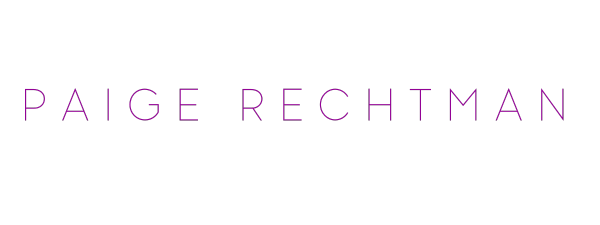About

Hi! I'm Paige
If you've landed here, you probably want to know less about me, and more about whether I can help you.
I am going to try my best to help you determine whether or not we are a good fit on this page. But I also invite you to check out my blog to get a deeper sense of my style.
I have been in the mental health field since 2012, and started my private practice in 2019. Going on and on about my credentials may not be the best use of your time, but if you want to learn more, head to the bottom of this page.
To make a long story short, I help treat people with anxiety. Why? Because I’ve been there!
I know that feeling – that you wish you could exist in the world as that person you’ve always wanted to be. But something is holding you back.
At the same time, every human is inherently unique, complex, and resilient – including you. Together, we will discover what you need to make positive changes in your life and heal.
Over the years, I've developed a holistic approach to treating anxiety.
I incorporate 2 frameworks into my practice that I’ve found to be most helpful.
- The first is CBT (Cognitive Behavioral Therapy), which stops you from panicking or getting caught up in a spiral of fear and worry. Instead, you gain the tools you need to regulate your emotions and express yourself in a healthier way.
- The second is a more psychodynamic approach, where you can find a deeper sense of inner peace by exploring what is causing your suffering. Stuff like your relational history, societal pressures, and upbringing.
It may help for you to start thinking about this one question – what do you want to get out of therapy?
And if you aren’t sure, let’s talk it out.
I know how difficult it can feel to ask for help when you’re going through a hard time. But I promise, you don’t have to struggle on your own. And what’s waiting for you on the other side is so worth it.

My values
Below are 10 core principles I use to guide me in the work I do with my clients, and also in my personal life.
Trust
Together we will create a safe space for you to bring up what is on your mind, even if it's embarrassing, uncomfortable or taboo.
Integrity
Gaining deeper awareness creates a solid foundation for healing; as does taking responsibility for what is within your power to change.
Connection
When you connect to yourself, to others, and to the world at large, you are forging a path towards healing.
INCLUSIVITY
Unjust racial systems, gendered expectations, and unrealistic standards of beauty have been impacting our collective mental health for generations; How does living in our world affect you?
Hope
Life inevitably brings suffering, but humans are resilient. I am a huge fan of Positive Psychology, and an optimist at heart.
Wholeness
I believe strongly in the mind/body/spirit connection and view mental health from a holistic perspective.
Meaning
A healthy dose of death awareness reminds us of what’s important. What do you need to love more deeply and live more freely?
Mindfulness
Learning to be present with your thoughts, your emotions, and your experience in the moment is one of the most valuable life skills you can develop.
Authenticity
There is no better feeling in the world than stepping into and fully expressing who you are.
Growth
Self-discovery involves both learning and unlearning. You may need to dig up some old, deep-rooted beliefs so you can make space for new ones.
Professional Credentials
Currently, I’m in the process of completing the MAPS MDMA-asisted Psychotherapy training program. Additionally, I taught mental health counseling graduate students at Teachers College, Columbia University.
Training & Coursework
- Jungian Psychology and the Hero’s Journey
- Creative and Spirituality in Healthcare
- Cognitive Behavioral Therapy
- Expressive Arts Therapy
- Positive Psychology
- Somatic Therapy
- Mindfulness
- Biofeedback
Education
- Masters of Education, Mental Health Counseling, University of Florida, 2012
- Specialist in Education, University of Florida, 2012
- Bachelor of Science, Journalism and Public Relations, University of Georgia.
Licenses and Certificates
- Licensed Mental Health Counselor (LMHC), New York State, #008089, 2017
- MAPS MDMA-Assisted Psychotherapy Certification (in progress), 2021
- Certificate of Study in Spirituality and Health, University of Florida, Gainesville, FL, 2012
Professional Experience
Adjunct Professor, Department of Counseling and Clinical Psychology, Teacher’s College, Columbia University, 2022
Student Advisor, New York University, School of Professional Studies, 2016-2019
Counseling Intern, Behavioral Associates, New York, NY, 2016 – 2017
Functional Family Therapist, The Children’s Aid Society, Brooklyn NY, 2013 – 2014
Instructor, University of Florida, College of Education, Human Growth and Development, 2011 – 2012
Life Coach, North Florida Retirement Village, Gainesville, FL, 2011 – 2012
Counseling Intern, PACE School for Girls, Gainesville, FL, 2012
Graduate Peer Educator, University of Florida, Counseling and Wellness Center, Sexual Trauma Prevention Program (STRIVE) 2010 – 2011
FAQ
Frequently Asked Questions about Therapy
Many young professionals in their 20’s and 30’s are attracted to my practice because I understand the unique struggles that people growing up in this day and age deal with, for I too have lived them.
Everyone’s experience is unique, but there are a few themes that tend to come up with the individuals I work with.
Therapy with me is if you:
- feel burned out early in your career and trapped in a cycle of overwork and exhaustion.
- avoid social situations and are constantly worried about what others think.
- have body image issues (and this goes for a lot of men too!).
- struggle with your sexual identity, shame, confusion, or feeling misunderstood.
- constantly compare yourself to others and feel like you don’t match up.
- want to be in a healthy relationship but can’t fully let your guard down.
- have never done therapy before and feel like you should be able to solve your own problems.
Good question! I always say – go with your gut. I recommend you check out my About Page and My Blog to see if what I have to say resonates.
You can also fill out the form below to schedule a consult call. If I don’t think I can help you with what you’re going through, I will let you know, and provide a referral for someone who is more aligned with your needs.
Therapy gives you a safe, confidential space to talk about whatever is on your mind. Together, we can figure out how you can best cope with whatever you’re struggling with.
In our sessions, you will do more than just vent. You’re going to find new ways of thinking about your situation and managing your emotions.
What I’ll also say is that sometimes, you may look forward to going to therapy, other times you might dread it. Sometimes you might feel really good after a session, and other times you might feel exhausted or really sad.
There may be days where you have a ton to talk about, and other days where you feel like there isn’t much to say.
Some people find it helpful to jot down notes throughout the week so they remember what they want to bring up. But even on days where you have no agenda, your session can be as fruitful as any other.
Therapy can dredge up a lot of buried feelings, and sorting them all out is difficult, and takes time. But the great thing about therapy is aren’t doing it alone.
Our first session is a little bit like a warm up. I’ll send some virtual paperwork for you to complete in advance of our first session, which includes a questionnaire for you to fill out.
When we meet, we will review that information and anything else you want me to know. My goal for our first session is to understand what’s troubling you, why you’re seeking therapy, and get an understanding of what you’d like to accomplish during our time together.
For you, it is a great opportunity to ask any questions and see if you feel comfortable working together.
This is a great question. Much of this depends on why you are in therapy, how motivated you are to make changes in your life, along with your personal values, preferences, and culture.
Luckily, there are tons of studies on psychotherapy, and about 80% of people who go to therapy experience benefits.
Finding the right therapist and building a trusting relationship is a very important part of the process. So if you feel safe enough to express yourself, that’s a good sign.
I encourage you to be as open and honest as possible so I can serve you as best as I can.
And if you decide to give it a try, pay attention to what is happening outside of your therapy sessions.
Ask yourself, are you:
- trying out new ways of thinking and behaving?
- reacting to others differently?
- becoming more self-aware?
- able to better recognize patterns in your life?
- starting to feel more hopeful?
It depends on why you’re in therapy and what you’re hoping to get out of it.
Many people feel relief after the first session. And oftentimes you’ll make some progress in 6- 12 weeks.
If you’re coming in because of a crisis or life transition, therapy can last around 6 months to a year.
If you’re looking to address more deeply rooted patterns of behavior, therapy might last longer.
I have found that many of the people I work with deeply value having the time and space address their emotional health. As you start to feel better, we can assess where you are with your goals, see if any new issues have popped up that may be worth addressing, or if it’s time to end therapy.
My door is always open – even if we terminate, you are welcome to reach out at any time to check in.
Check Out My Blog
It’s okay to start working on yourself before therapy starts. Read the posts below to start gaining insight into your patterns.

Hobbies In NYC To Help You Feel More Alive
If you live in NYC and feel depressed, you are not alone. Even though the city is stuffed to the brim with people, it can

Self-Esteem vs. Self-Confidence, And Which To Focus On
Self-Esteem vs. confidence: they may seem like synonyms, right? And in some ways, they are similar concepts. However, if you tend to put yourself down

5 Ways To Practice Self-Connection When Feeling Lost
If you’re feeling lost, one of the best ways to get your life back into alignment with who you are is by taking time to
